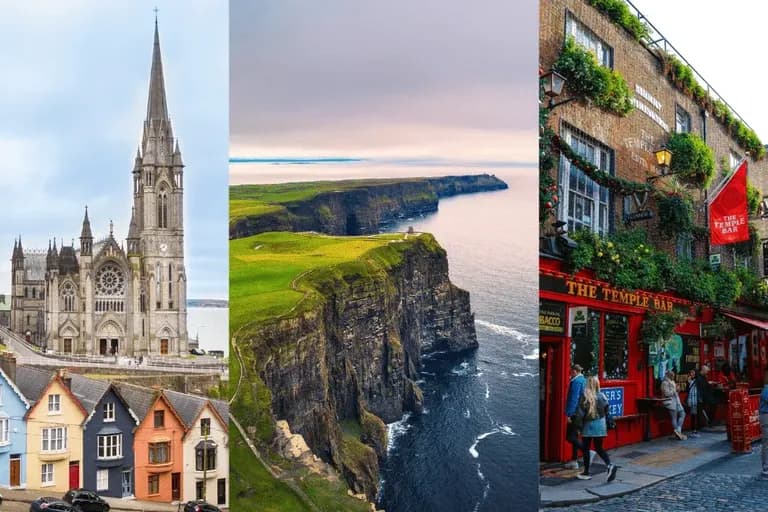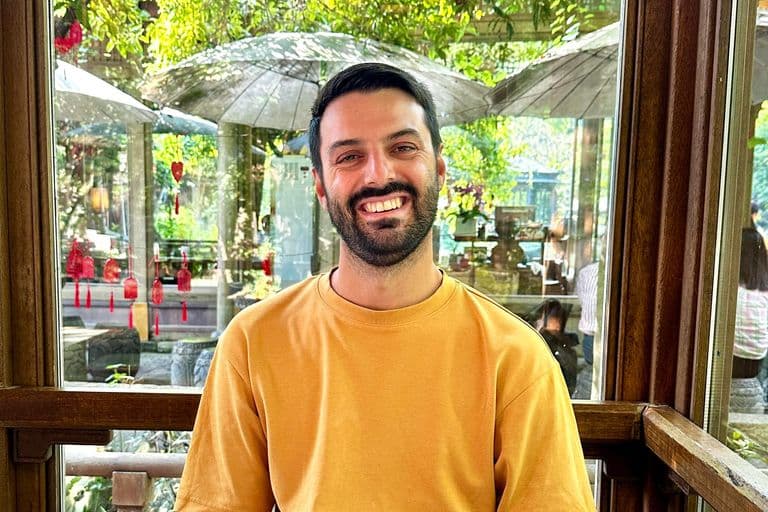How to Find Digital Nomad Accommodations: 9 Nomad Expert Tips
Top expert tips on finding the perfect digital nomad accommodations. Learn how to balance budget, comfort, and functionality for your nomadic lifestyle.

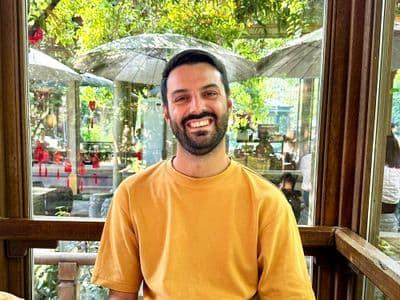
Accommodation is one of the biggest fixed costs for digital nomads, and finding the right place to stay can make a huge difference in your travel experience and budget.
We reached out to Chris Cerra, a.k.a. "The Nomad Accommodation Guy". He's the founder of RemoteBase and a seasoned digital nomad, so we asked him to share his expert insights on how to find the perfect accommodations that balance comfort, affordability, and functionality.
Here’s what he shared with us.
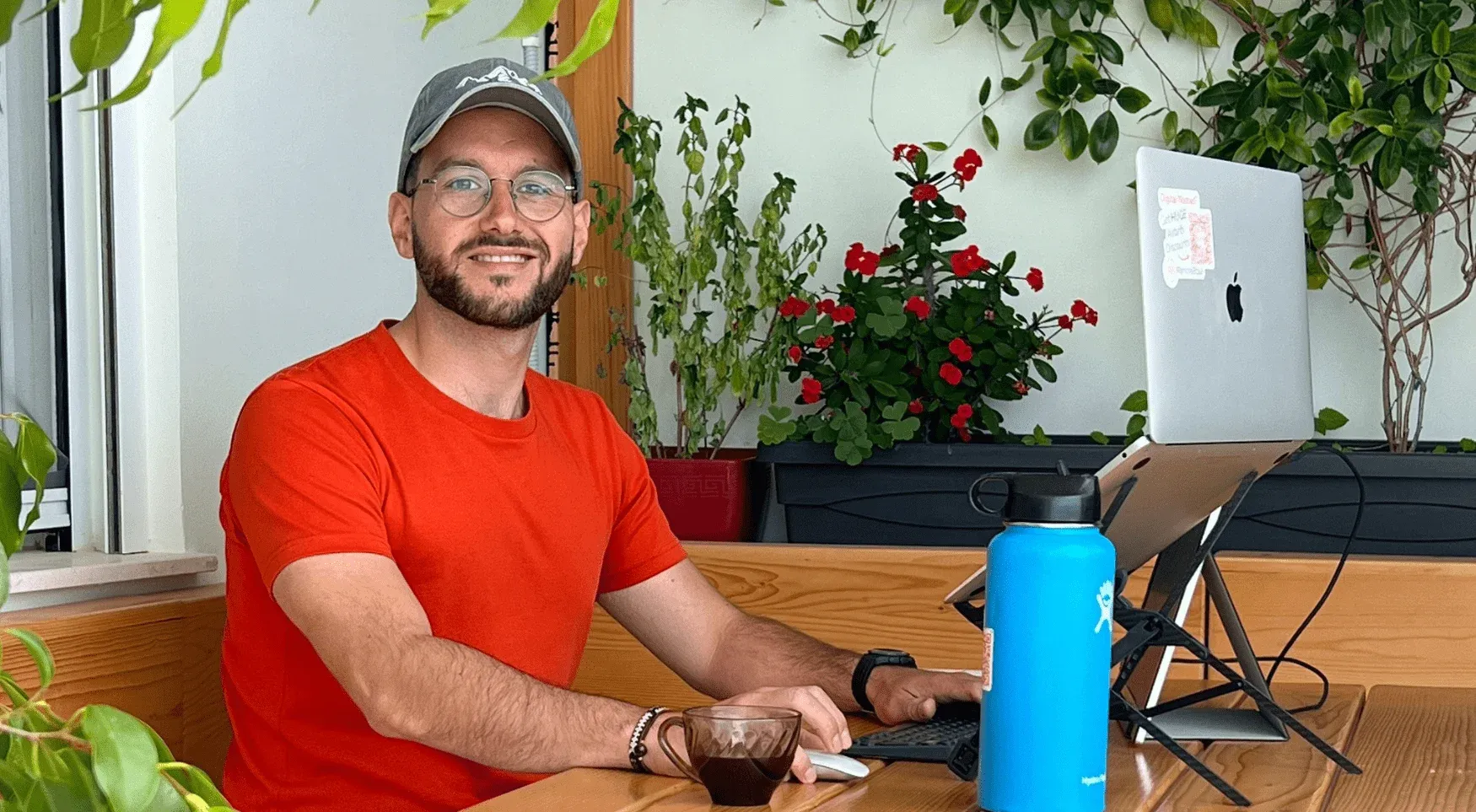
Nomad Tip #1: Define what “Reasonable” and “Budget-Friendly” mean to you
Finding budget-friendly accommodations starts with understanding what “reasonable” and “budget-friendly” truly mean for you. Reasonable and budget-friendly will mean different things to different people, but somehow there are two themes that emerge in the nomad accommodation space: brands try to differentiate with low price points, and people will go out of their way to save every single penny, even if they don’t need to.
In Chris' view, there is the way to approach these two important concepts:
- Reasonable = define your non-negotiables. What amenities are essential for your lifestyle? Is it a kitchen to cook your own meals? Proximity to the beach? A dedicated workspace? Know your priorities and this will massively help you streamline your search.
- Budget-friendly = ‘within budget’. As Chris points out: “Most nomads aren’t ‘cheap’. They want the best VALUE”. Sometimes spending a bit more can provide significantly better comfort and convenience, enhancing your overall experience. Focusing always on value over cost.
If you focus on clearly defining what you need and what you’re willing to spend, you will find accommodations that offer the best value without compromising on what matters most to you.
And if you’re in a situation where the numbers don’t make sense, Chris suggests to “spend your energy on making more money, rather than spending less” because “ultimately there is a limit to what you can save, and there is no limit on what you can make”.
Nomad Tip #2: Explore unique and off-the-beaten-path options
Chris explains that based on his experience, “There are usually two schools of thought when picking a digital nomad destination:
- By the time a destination is up and coming, it’s already dead.
- Community is king.”
If you’re looking to stand out from the typical nomad crowd, exploring unique or off-the-beaten-path accommodations can significantly enhance your travel experience as a digital nomad.
To uncover new hidden gems, consider the following:
- Go beyond your usual nomad hotspots: Instead of staying in the usual tourist areas, consider looking 20-40 minutes outside the main hotspots. For example, if you want to be in Buenos Aires, don’t look in Palermo, look in Saint Nicolas. Or if you want to be in Chiang Mai, don’t look in Nimman, look in Santitham, or along the Ping River.
- Leverage community-focused initiatives: “One way you can access the ‘best of both’ is through community-focused accommodation initiatives,” says Chris. Platforms like Hoodmaps can help you identify residential areas near popular hotspots, so make sure to take advantage of these tools.
You can venture a bit further from the main areas, and you will find unique accommodations that offer a more authentic and often more affordable experience.
Nomad Tip #3: Create a personalized accommodation checklist
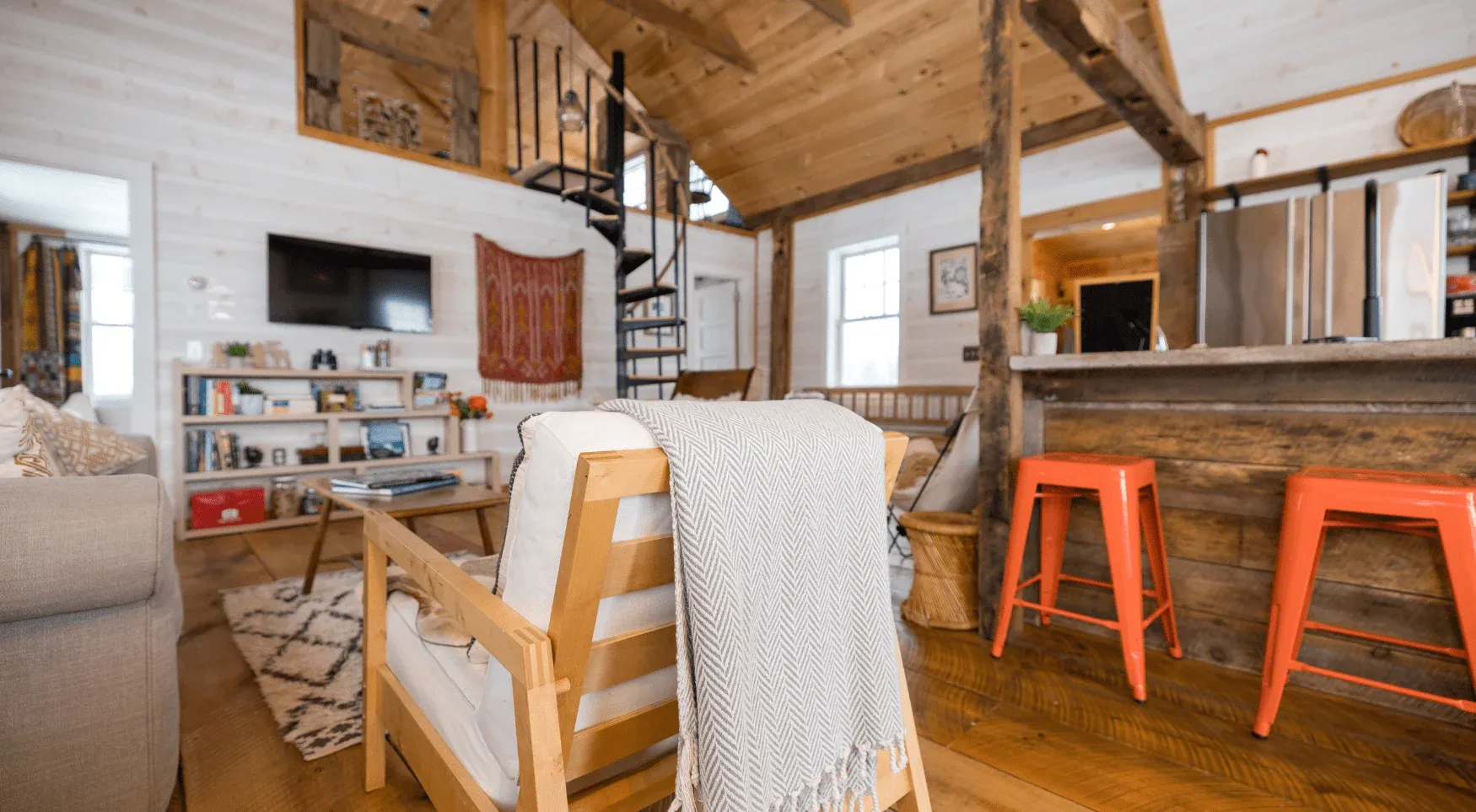
Having a personalized checklist ensures that you don’t overlook important factors when choosing your accommodation. When talking about this, Chris emphasizes:
“Choosing the right accommodation it comes to personal preferences. What I recommend is grabbing a pen, open your notes app, and map it out. Seriously, this is by far the best exercise you can do.”
But how do you do that? Here’s how to create your own checklist:
- Start by applying the 20-minute rule to your location essentials:
- Grocery stores
- Gyms
- Coworking spaces
- Coffee shops
- Consider the interior features that make a place feel like home:
- Enough kitchen space to prepare meals
- Ample daylight
- Comfortable furniture, like a sofa you can slouch into after a long day exploring
The key here is to map out your priorities and make informed decisions that align with your lifestyle and work needs—something as simple as thinking through the essentials before booking can make all the difference.
Nomad Tip #4: Optimize your search on accommodation platforms
Using platforms like Airbnb effectively can save you both time and money. Here are the strategies that Chris offers to optimize your search (he follows them religiously to find the best deals for his RemoteBase newsletter):
- Be flexible. As a nomad, you have the ultimate flexibility—leverage that to stay in places when they are available. Being flexible with your dates and locations can open up more options.
- Filter your results wisely. And more specifically:
- Check host profiles for multiple listings
- Read reviews thoroughly. If a listing has a poor rating, don’t dismiss it. Read the review that was poor.
- Don’t hesitate to reach out. Always message the host. Highlight your positive reviews and state your budget to negotiate better rates. Often, hosts are willing to offer discounts to reliable guests.
By following these simple strategies, you will be able to uncover hidden deals on rental platforms and secure accommodations that offer better value for your nomad stays.
Nomad Tip #5: Balance cost and comfort with the right accommodation type
Choosing the right type of accommodation is another crucial aspect of being able to balance cost and comfort.
That's Chris' perspective on this:
“The question 'What's cheaper: Airbnb, a hotel, or a coliving?' is the wrong question to ask yourself. The answer will be different everywhere in the world, and depending on how long you stay for. A better question is: 'What’s the right accommodation for me'?”
Here’s what you should be considering when finding the best accommodation for you:
- Consider long-term stays: Hostels might be the cheapest option, but they’re not ideal for long-term stays, which is what most nomads tend to go for. Instead, look into hotels, coliving spaces, or private apartments that offer more comfort and stability.
- Think about value for money: A 2-star hotel ‘room’ might be cheaper than a 2-bedroom Airbnb for a month, but you’ll likely feel much more ‘at home’ in an Airbnb. Think about the long-term benefits of each option, such as the ability to cook your own meals or having a dedicated workspace. They will save you a lot of headaches along the way.
Go beyond just the price, and start making choices that enhance your living experience as a digital nomad.
Nomad Tip #6: Time your bookings for the best accommodation dealsregion
When you book your accommodation can significantly impact the cost. Chris provides valuable insights on timing here:
- Book early for popular locations: “I always suggest looking 4-6 months in advance for popular locations”, says Chris. Early booking can secure better rates and preferred locations.
- Last-minute deals: For less popular destinations or off-season travel, last-minute bookings can offer substantial discounts. However, in high-demand areas, these deals are harder to come by.
- Negotiate for longer stays: In some cases, negotiating with hosts for longer stays can lead to better rates. If you’re in a destination that isn’t a hotspot and it’s low season, you can negotiate incredible rates on off-season, last-minute, long stays.
By planning your bookings strategically, you will take advantage of both early and last-minute deals to maximize your budget. So, you can spend more money on focusing on exploring new places or investing in your remote career/business.
Nomad Tip #7: Leverage digital nomad communities
Digital nomad communities are one of the most invaluable resources for finding accommodations. Chris emphasizes the importance of community in your search:
“If you want to be where the community is, you have to look at established locations… One way to get something unique is to go 20-40 minutes out of the hotspot epicenters.”
Here’s how you can tap into these communities:
- Join online groups: Platforms like Facebook groups and Reddit’s r/digitalnomad are great for connecting with other nomads and finding accommodation tips.
- Join coworking spaces: Coworking spaces are not only for work. They usually organize tons of events and you will get to meet a lot of people. This can lead to insider recommendations and potential accommodation opportunities, so don't miss out.
- Use specialized platforms: Websites like RemoteBase, which Chris runs, focus on sharing the best value options tailored for the nomad community. You can also ask questions in digital nomad forums as you will get answers from fellow nomads directly. Use these resources wisely as you might find some great deals.
Don't forget to participate actively in these communities, as this improves the whole digital nomad ecosystem and allows all of us to benefit from it.
Nomad Tip #8: Manage your budget wisely
Effective budget management is another great way to make sure that your accommodation costs remain sustainable.
Here’s how to manage your budget wisely:
- Set a rent limit: Follow the rule of spending no more than 30% of your monthly earnings on accommodation. This helps prevent overspending and maintains a balanced budget.
- Prioritize value: “People often think cheapest = best. But most of the time cheapest = worst”, says Chris. Allocate your budget towards accommodations that offer the best value rather than just the lowest price.
- Consider additional costs: Factor in utilities, transportation, and food expenses to get a complete picture of your budget.
If you set clear financial boundaries and focus on value instead, you can ensure that your accommodation costs align with your overall budget.
Tip #8: Choose a budget-conscious region or country
Another smart way to maximize your budget as a digital nomad is by selecting a budget-conscious region or country. Chris's advice here is:
“If you’re making €3,000 a month, it’d be reasonable to spend €900 on rent. But people often go crazy trying to find options under €500. A better way would be to find a budget-conscious region or country.”
Choosing a more affordable location allows you to live a better lifestyle within your budget and stretch your money further.
This approach not only enhances your quality of life but also saves you time and energy, enabling you to focus on making more money and exploring more of the world.
For example, if you’re from Italy or Greece, it might be easier and more cost-effective to spend 3 months in North Macedonia and 3 months in Albania rather than paying for an expensive flight to Bangkok or Da Nang.
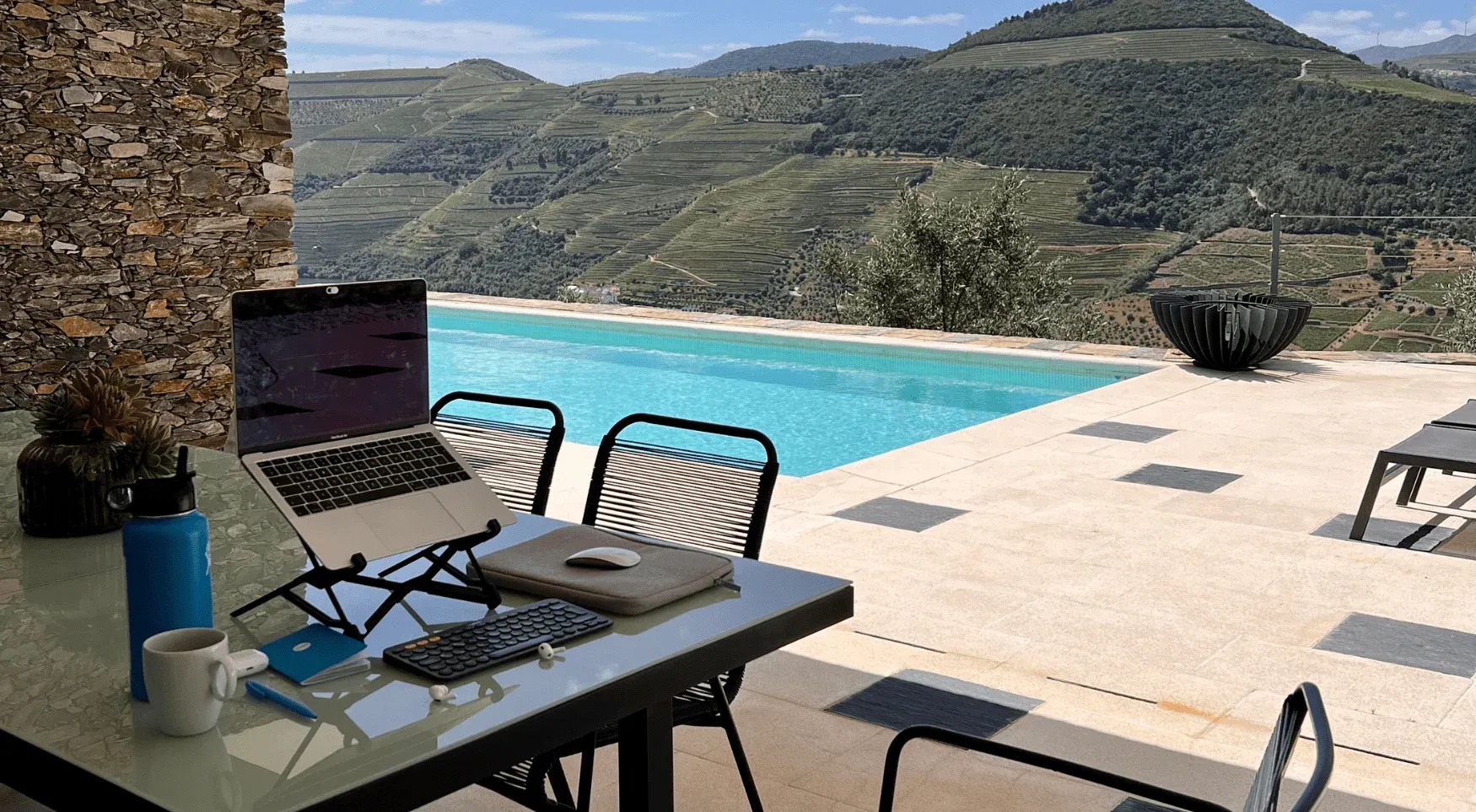
Here’s how to make the most of this strategy:
- Research cost of living. You can use resources like Numbeo or NomadList to compare the cost of living in different countries. They both provide rankings for safety, crime, and air quality, helping you choose places that are not only affordable but also comfortable and safe.
- Plan your itinerary wisely. By alternating between more affordable regions, you can maintain a high standard of living without overspending. This strategy allows you to explore diverse cultures and environments while keeping your expenses in check.
- Optimize your travel routes. Choosing regions that are geographically closer can save you money on flights and reduce travel time. This way, you can spend more time enjoying your destination and less time and money on transportation.
Nomad Tip #9: Explore sustainable accommodation options
Sustainability is becoming increasingly important for digital nomads. Choosing eco-friendly accommodations not only benefits the environment but can also improve your overall travel experience.
Chris explains:
“Sustainability is a personal and emotional choice. When you choose accommodations that align with your values, it will enhance your overall experience and you will be able to contribute positively to the places you visit”.
But how do you prioritize sustainability when choosing your nomad accommodation? These are the top things you can do to travel responsibly:
- Use eco-certified lodgings. Look for accommodations with green certifications or those that implement sustainable practices.
- Support local businesses. Opt for locally-owned places to foster community and sustainability.
- Choose places that use renewable energy. Properties utilizing renewable energy sources contribute to a greener lifestyle. Check which energy source they use and be conscious about it.
We'll leave you below some of our best resources so that you can save them and come back to them whenever you wish.
Where to Find Digital Nomad Accommodations? Our Favorite Resources
Finding the right accommodation is easier when you know where to look. Below are some of our favorite nomad accommodation resources. Make sure to save them so you can come back to them whenever you wish.
- RemoteBase – Curated newsletter sharing the best digital nomad accommodation deals.
- Airbnb – A major platform for short to medium-term stays with diverse options for digital nomads.
- Booking.com and Agoda – Both are great for finding budget guest houses, hotels, and homestays, especially in Asia.
- Flatio – Ideal for medium to long-term rentals for digital nomads, offering fully furnished apartments with flexible lease terms (Use the code freakingnomads to get 10% off on the service fee).
- Hostelworld – Perfect for finding hostels if you’re on a tighter budget.
- Freaking Nomads Hub – Great for finding coliving suitable for digital nomads and remote workers.
- NomadStays – A site to find Wi-Fi-connected and affordable digital nomad accommodations, including apartments, villas, coliving, boats, vans & more.
- TrustedHousesitters – The biggest (and most well-known) house and pet-care platform.
- Nomadico – Affordable coliving homes for digital nomads and remote workers. They team up with locals to create affordable weekly and monthly stays, featuring dedicated workspaces and fast WiFi, all powered by local partnerships.
- Nomad List – The most well-know platform to connect with other nomads and find data on the top digital nomad hubs in the world.
- Hoodmaps – A useful tool to check residential areas near popular hotspots.
Some Final Thoughts
As we saw in this guide, finding the right accommodation as a nomad involves a balance of defining your personal needs, managing your budget wisely, and leveraging the right resources and communities.
As Chris Cerra shared with us, “Having a clear framework will help you make the best decisions, ensuring you live your version of a best-value lifestyle”. We hope these insights will be your framework to help you navigate the accommodation search with confidence and clarity.
Ready to Find Your Digital Nomad Accommodation?
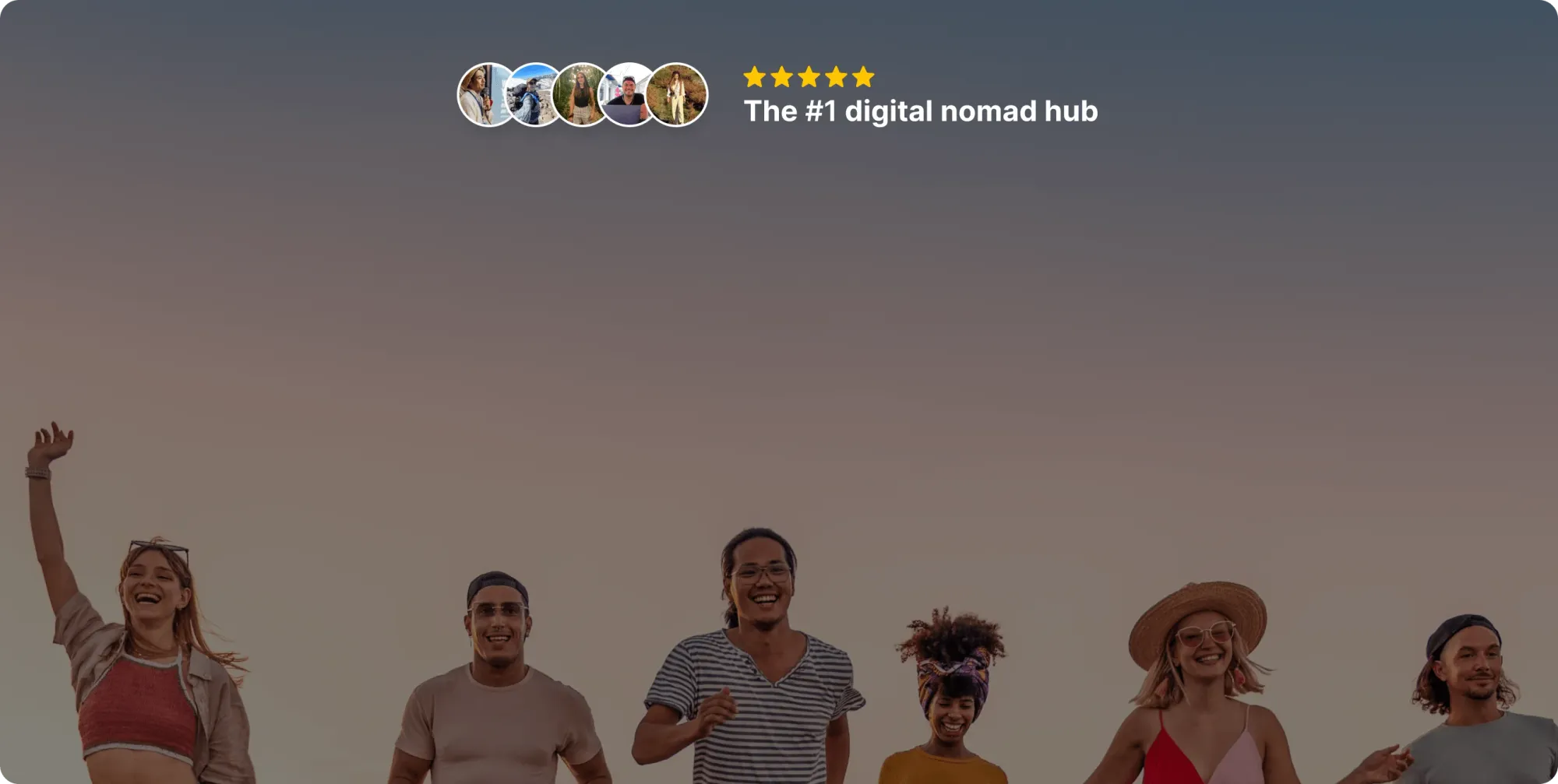
Join our global
digital nomad community
Join us for free
Freaking Nomads is supported by you. Clicking through our links may earn us a small affiliate commission, and that's what allows us to keep producing free, helpful content. Learn more
Read Next

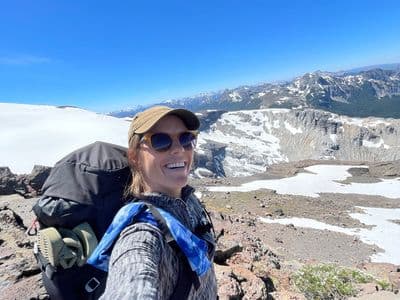
Honest Guide for Digital Nomads in Costa Rica


Top Digital Nomad Visas in Schengen Countries
